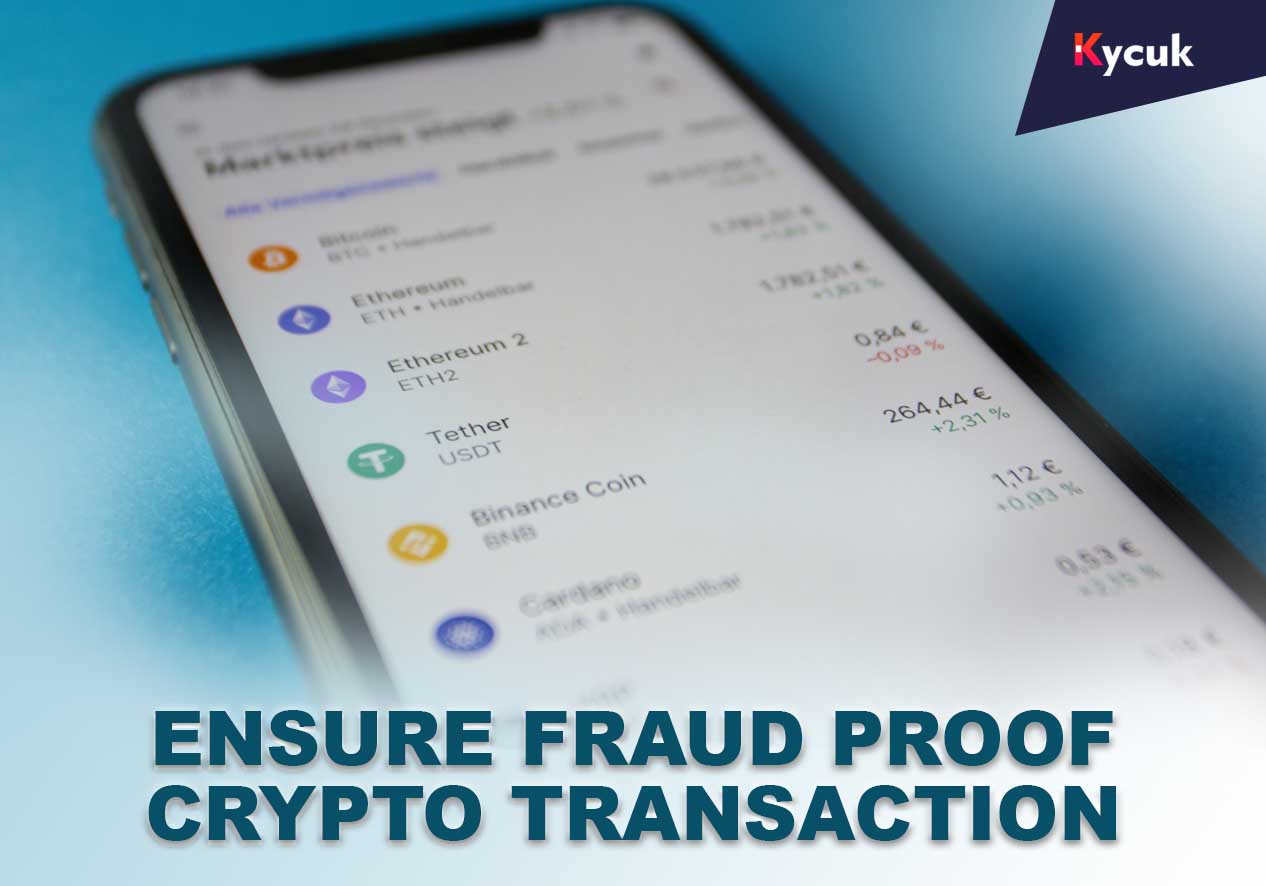Cryptocurrency is a digital or virtual form of currency that uses cryptography to secure financial transactions, verify asset transfer verification, and control the creation of additional currency units. It operates independently, utilising decentralised technology, typically a blockchain, to record transactions across a distributed network.
What Role Does KYC Play in Crypto Exchanges?
KYC plays a pivotal role in crypto exchanges by verifying and authenticating users’ identities in cryptocurrency transactions. It is a crucial risk management tool, deterring illicit activities like money laundering and financial fraud in crypto.
Through stringent identity verification processes, KYC measures aim to validate the identities of individuals or entities participating in crypto exchanges.
This verification includes documentation like government-issued IDs, proof of address, and sometimes biometric data, establishing a layer of trust and security. By implementing robust KYC procedures provided by the KYC services provider, crypto exchanges enhance transparency, reduce the risk of financial crimes, and foster a more secure environment for users and investors. It builds credibility and encourages broader adoption and confidence in the cryptocurrency market.

Crypto Exchanges in the United Kingdom
In the dynamic landscape of the crypto exchange industry in the UK, the rise of digital currencies has brought immense opportunities. Still, it has also posed significant challenges, particularly regarding financial fraud. Ensuring a secure environment within this sphere demands stringent regulatory measures and diligent adherence to compliance standards.
FCA Regulatory Compliance Followed by UK Businesses
The Financial Conduct Authority (FCA) plays a pivotal role in overseeing crypto-related activities in the UK. It helps to prevent financial crimes such as money laundering and fraud. Businesses engaging in crypto transactions adhere to FCA guidelines to ensure compliance, fostering a safer trading and investment activities environment.
Starting September 1, 2023, crypto asset businesses operating in the UK must gather, authenticate, and exchange data about crypto asset transfers, referred to as the ‘Travel Rule.’
How Does the KYC Verification Process Work for Crypto Exchanges?
Four significant steps are involved in the KYC verification process, which prevents financial fraud, starting with:
Step-1- Gather Basic Information
When enrolling a new client, exchanges must gather primary identification details about the individual. Companies should utilise digital customer due diligence (CDD) tools to effectively and precisely document the necessary information, thus reducing the likelihood of mistakes.
- Essential customer data needed for the KYC process involves:
- Names
- Address of Proof
- Date of birth
- Social security numbers
Step 2- Authenticate Customer Information
Cryptocurrency exchanges are mandated to guarantee the precision and currency of the information gathered during their KYC procedures. This involves cross-referencing the provided data with authoritative documents like driver’s licences, passports, and birth certificates. Furthermore, after acquiring this identifying information, companies must conduct thorough screenings against official compilations that could influence a customer’s risk assessment. These encompass-
- Regions deemed high-risk
- Global registers of sanctions and watch lists
- Politically exposed persons (PEP) lists
- Databases cataloguing participants linked to bribery and corruption.
Step-3- Allocating Customer Risk Evaluation
This assessment forms the bedrock of a customer’s KYC risk rating, encompassing factors such as the potential involvement in financial wrongdoing by an individual customer and the broader operational compliance risks a firm faces.
In jurisdictions requiring a risk-based approach to Anti-Money Laundering, firms must assess each customer’s KYC risk rating, with stringent measures for high-risk clients and more straightforward steps for lower-risk clients.
Step-4- Continual Risk Assessment
Once the exchange confirms a customer’s compliance, they gain access to specific activities. However, KYC isn’t a singular process confined to the start of the relationship. Regular risk reviews are imperative to track customer risk profile changes. Continuous transaction monitoring serves as a method to ensure that customers’ financial actions align with their risk evaluation.
How Can KYC UK Help?
Amidst these challenges, entities like KYC UK have emerged as reliable and trusted KYC service providers. KYC UK is crucial in preventing financial fraud in the crypto exchange industry by offering robust identity verification services. By meticulously verifying user identities and conducting thorough due diligence, KYC UK assists crypto businesses in preventing financial fraud and mitigating the risk of other fraudulent activities.
KYC UK’s dedication to stringent verification processes significantly contributes to bolstering the integrity of the crypto exchange industry. Implementing Know Your Customer procedures creates a shield against illicit activities, fostering a more secure environment for crypto transactions in the UK.
Conclusion:
In conclusion, as the crypto exchange industry in the UK continues to evolve, maintaining vigilance against financial fraud remains a top priority. Adhering to KYC solutions, such as those delivered by the KYC service providers, is crucial in preventing and combating financial fraud in the dynamic realm of cryptocurrency exchanges in the UK. Collectively, these efforts work towards establishing a safer and more reliable ecosystem for crypto enthusiasts and investors alike.

